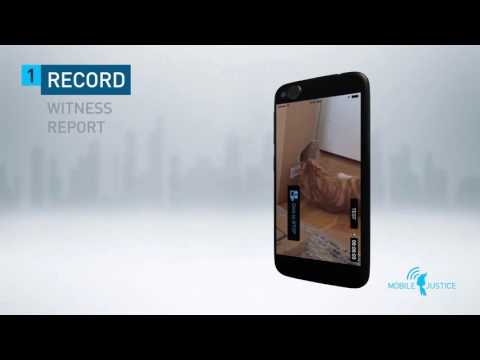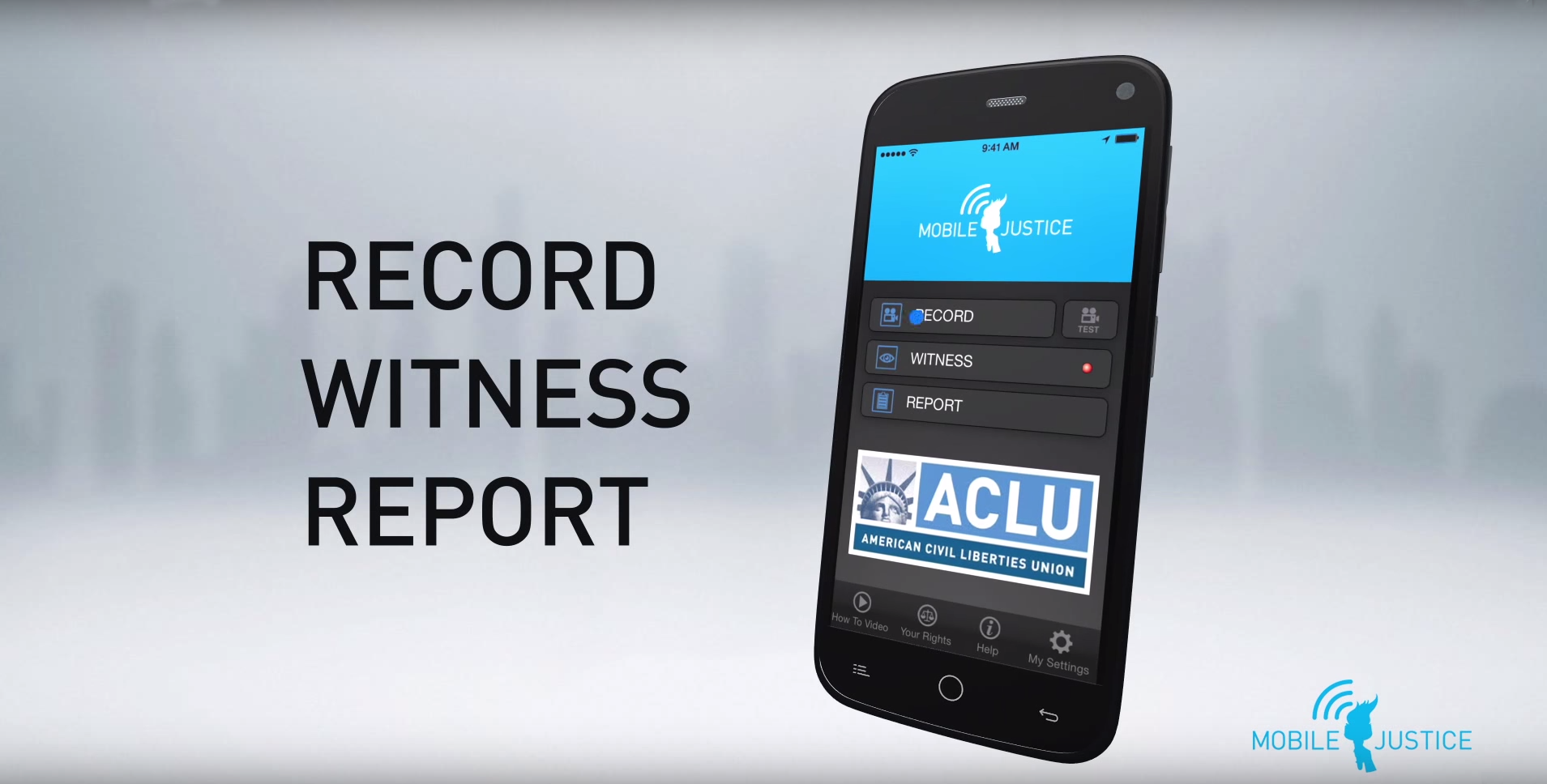The Mobile Justice New Mexico app is a tool that lets New Mexicans use their smart phones to record police or Border Patrol encounters and file reports of law enforcement misconduct. The app is a project by the ACLU of New Mexico that aims to empower community members by turning the technology we carry in our pockets into to powerful tools for law enforcement accountability and community safety.


What does the Mobile Justice New Mexico App do?
The Mobile Justice New Mexico App has four basic functions:
- RECORD AND INCIDENT: After you finish recording it is automatically saved to your phone and a copy is uploade directly to a secure ACLU server. Even if a police officer grabs your phone and deletes the footage, your recording is safe with the ACLU.
- FILE A REPORT: If you witness police misconduct, you can use the app to file a report directly with the ACLU.
- WITNESS AN INCIDENT: With the location services turned on, other app users will be informed when an incident is being filmed nearby. Two sets of eyes are better than one, and the app helps connect civic minded people to hold police accountable in real time.
- KNOW YOUR RIGHTS: The App includes some basic guidance on your rights when recording law enforcement officers on public property while they execute their duties. This section is for general education only, and is not intended to be specific legal advice.
Why does this app exist?
Over and over again, we have seen how important video recording technology is to holding law enforcement officers accountable. Without video evidence we would have never have known the full picture of what happened in the Albuquerque foothills the day police shot and killed homeless camper James Boyd. Without bystander cell phone footage we would have never seen officers choke the life out of unarmed Eric Garner on the streets of Long Island, or witness what really happened the night Customs and Border Protection officers beat and tased Anastasio Hernandez Rojas into a coma that resulted in death.
Officer-worn cameras are an important part of the solution when it comes to reducing police brutality, but we know that all too often this technology falls short of its potential. Officers neglect to turn on their cameras, recording equipment malfunctions, footage is mysteriously lost, and sometimes the angle of the recording gives an incomplete accounting of the incident. By empowering community members to responsibly and legally record officers, we provide an extra layer of accountability and protection for both officers and the communities they serve.
The Mobile Justice New Mexico app and our border communities
The ACLU Mobile Justice New Mexico app has special potential to make an impact in our state’s border communities. The U.S. Border Patrol is part of the largest law enforcement agency in the country and operates with a shocking lack of oversight and accountability. The agency claims extraordinary authority to operate 100 miles away from the nearest international border and beyond, regularly engages in racial profiling, and has a record of violence that has left at least 40 people dead—some of whom were unarmed children. No Border Patrol agent involved in these deaths has yet been publicly disciplined.
A report by the ACLU of New Mexico uncovered evidence that Border Patrol agents in New Mexico:
- Abuse innocent residents who are doing nothing more than going about their daily lives.
- Racially profile innocent border residents, making our communities less safe and sowing mistrust in the community.
- Put the health, safety, and dignity of border residents at risk by stopping ambulances and patrolling through health centers in violation of their own policy.
Border residents should never have to live with the constant fear of mistreatment and discrimination by law enforcement. Our border communities are safe and diverse communities where racial profiling by Border Patrol has undermined trust and ignored our constitutional rights and values. The Mobile Justice New Mexico app is one way that New Mexicans can document harassment and abuse by Border Patrol and help hold agents accountable.
Date
Tuesday, September 12, 2017 - 10:15amFeatured image

.png)
